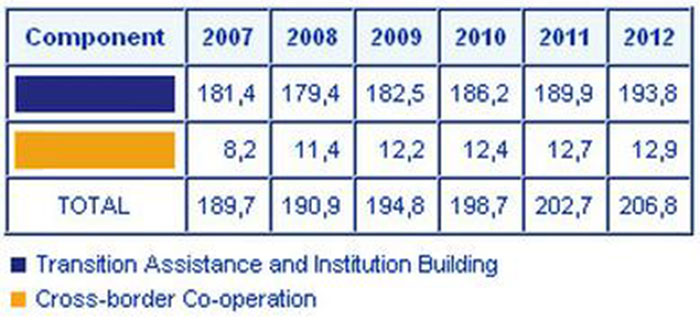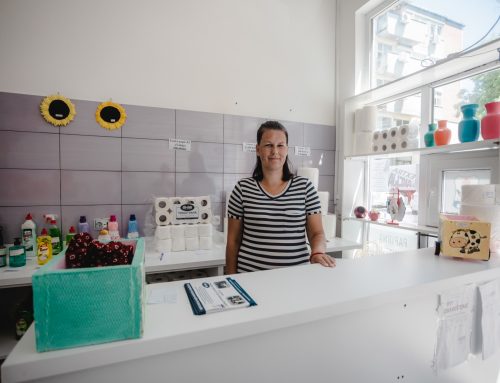Chapter 15 in the negotiations with the EU, concerning energy, is very demanding and the Government of Serbia will have to adopt and implement Energy Strategy in line with and according to deadlines of the Energy Community Treaty; this was said at the Closing conference of the Slovakia-Serbia Twinning project for the capacity building for the Energy Agency.
Through the Slovakia-Serbia Twinning project, which was funded by the European Union with €1.5 million, capacity of the Energy Agency of Serbia (AERS) were strengthened, was said at the closing conference of the project, which lasted 20 months.

Minister of Energy Zorana Mihajlovic stated to the press at the presentation of results of Twinning project between two regulatory agencies from Serbia and Slovakia, that the project will help AERS to be prepared to follow all energy sector challenges in negotiations with the EU.
She recalled that the AERS was established in 2005, and today has 38 employees, and that it managed to set the foundation of independence, but that is only beginning, because numerous obligations are ahead of it, as well as personnel and resource training.
Chapter 15 in negotiations with the EU is very serious, because we must align with regulations and we must determine the pace of that work, said Mihajlovic.
Head of the EU Delegation to Serbia Michael Davenport underlined that the Serbia`s harmonization in Chapter 15, which concerns energy, will be crucial to its progress in the EU accession.
Challenge of environmental protection will be the most difficult and it requires the most money, he pointed out.
Davenport pointed out that the Government of Serbia will have to adopt and implement Energy Strategy in line with and according to deadlines of the Energy Community Treaty.
This will be further encouragement for restructuring and modernisation of energy companies owned by the state, such as Srbijagas and EPS, providing new investments, said Davenport.
According to him, regulated energy prices must cover all reasonable expenses, state incentives should be gradually abolished, and collecting rate should be brought to appropriate level.
Minister of Economy of Slovakia Tomáš Malatinský expressed satisfaction with the fact that Serbia started accession negotiations last week and pointed out that it is a new chance for wider cooperation in all fields.
He pointed that membership of Serbian energy in the European market of 500 million consumers means the harmonisation and liberalisation of business environment in energy sector in the end.
Malatinský underlined that there is a demanding task ahead of Serbia that it has to fulfil, and pointed out that Serbia is now in the situation in which Slovakia was at the beginning of process and offered wholehearted assistance of his country and his ministry.
PRESS RELEASE
On January 29th 2014 at the Chamber of Commerce and Industry of Serbia, high level officials marked the end of a successful EU twinning project “Capacity Building for the Energy Agency of the Republic of Serbia”.
The project was financed by the EU with a € 1.5 million donation and was implemented within 20 months by Regulatory Office for Network Industries of the Slovak Republic in order to strengthen the capacities of the Energy Agency of the Republic of Serbia to implement the commitments undertaken by Serbia in the framework of the new Energy Law, EU accession process and the Energy Community Treaty.
The audience was addressed by Mrs Zorana Mihajlović, Minister of Energy, Development and Environment Protection of the Republic of Serbia, Mr Tomaš Malatinský, Minister of Economy of the Slovak Republic, Mr. Jozef Holjenčík, Chairman, Regulatory Office for Networking Industries, Slovakia, Mr. Ljubo Maćić, President of the Council, Energy Agency of the Republic of Serbia, Mr Michael Davenport, Head of the Delegation of the European Union to the Republic of Serbia and Mr Janez Kopač, Director of the Energy Community Secretariat.
Using Slovak good practices, project experts delivered 48 training sessions and conducted three specialised study visits for the Serbian colleagues in order to strengthen the capacity of the Energy Agency to develop and implement regulatory policies and strategies as well as to oversee the necessary reforms in the energy sector.
Special attention was given to upgrading of the price regulation capacity of AERS, pricing methodologies and tariff systems were approved and implemented in compliance with EU energy legislation and best regulatory practices. Where necessary and in order to achieve compliance with the new energy law and applicable EU legislation, as well as with best regulatory practice, new or amended pricing methodologies were prepared by AERS, taking into consideration results of joint working groups.
At present, as a result of the project, the applicable methodologies are in compliance with the EU legislation. Activity report was elaborated, providing recommendations for integration of quality of supply in the price regulation. Capacity of AERS related to national energy markets was strengthened and a market surveillance methodology was developed including recommendations for enhancing the functioning of Serbian energy markets.
In addition, the project also strengthened the AERS capacity related to the regional energy markets and cooperation at the regional level and upgraded the regulatory framework for smart meter roll-out and quality of supply monitoring. The review report on functional requirements for smart meters defined in transmission and distribution grid codes was prepared including proposals for enhancing and amending the relevant provisions of the grid codes. Rules on quality of supply monitoring were adopted by AERS in December 2013.
The AERS capacity related to renewable energy sources was upgraded, review on current legal framework and operational practices for investment of renewable energy sources was elaborated, as well as a report on mitigation of barriers for investment in renewable energy sources was developed.
Enhancing the AERS organisational and management capacity was important part of project implementation. In this respect, functional analysis was conducted taking into consideration AERS competencies related to the new Energy Law and Management Plan for AERS identifying recommended changes in organisational and functional structure, staff number, skill needs and other resource requirements was prepared and will be implemented in the upcoming months.
The project results are seen by the beneficiary as an important step towards further strengthening the AERS as national energy regulator as well towards meeting future challenges arising from the implementation of the valid EU energy legislation.
Further information:
Mr Dušan Daković, PR, Energy Agency of the Republic of Serbia, dusan.dakovic@aers.rs; Tel.: ++381/(0)11/3037186
Ms Nadežda Dramićanin, Information and Communication Officer, Delegation of the European Union to the Republic of Serbia, Tel.:+ 385/(0)11/3083 200




